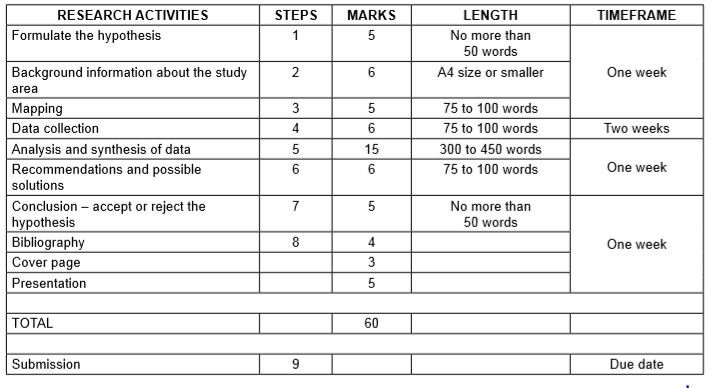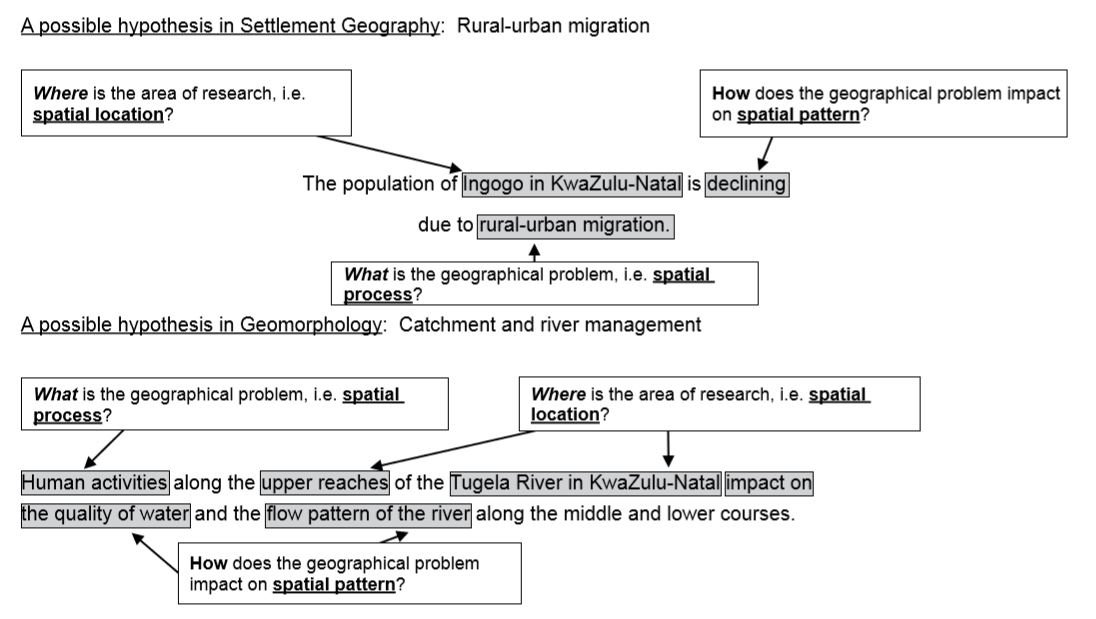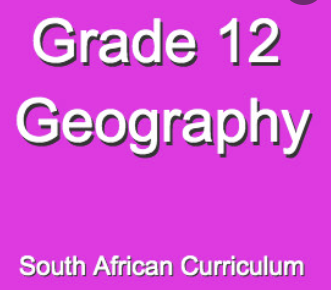Geography grade 12 research task 2019 memorandum
Geography grade 12 research task 2019 memorandum; The project is a scientometric study that analyses the current research practice in geography using both quantitative and qualitative methods. It is based on the assumption that scientific research is necessarily embodied in publications and that the latter are therefore suitable indicators of research practice.
Tzobserver.com provides a comprehensive collection of National, Western Cape (WC), Kwa-Zulu Natal (KZN), Gauteng (GP), Eastern Cape (EC), Mpumalanga (MP), North West (NW), and Free State (FS).
This page makes it simple to find the Memorandum and geography Question Paper 1 because they are organized by year and exam month.
View or download all pdf for Geography grade 12 research task 2019 memorandum
GET BONUS by clicking the invitation button to share with your school friends, You are free to let your schoolmates know about this website BY giving them this link; INVITE HERE
Essential to have the Geography grade 12 research task 2019 memorandum for students.
Past papers are essential for the student and are an excellent resource for teaching and knowing if you understand, the following are the factors that make past papers useful for students as follows:
- It helps to develop the student’s confidence in taking his or her exams because he or she will know the questions being asked.
- It helps the student to know what his or her weaknesses are.
- It stimulates the student to develop the ability to answer various questions through the questions he encounters in these past papers.
The Geography grade 12 curriculum focuses on similar areas of skills, knowledge, and values
How to download Geography grade 12 research task 2019 memorandum
- GO to your Geography grade 12,
- Click the specific year of past paper or project you want,
- Then click download
DOWNLOAD HERE
What Skills are Assessed for Research Tasks in Grade 12
The following skills are assessed. Some/All of these skills may be tested in any external examination:
- Gathering data
- Interpreting data
- Analysing data
- Comparing different sets of data
- Representing data in written, graphic or mapped format
- Problem-solving
- Drawing conclusions
- Hypothesis statements
Research framework for assessment (Guideline on administration of research task)

Step 1: Formulating a hypothesis/problem statement.
Guideline: Geography Grade 12 Research Tasks
Step 1: Formulating a hypothesis/problem statement. As Geographers we seek to understand and explain the interactions amongst humans, and between humans and the environment in space and time. This is achieved by asking questions or making informed geographical decisions. This entails the development of a hypothesis or a problem statement to be tested.
- You have to choose a specific area of study where a geographical problem exists.
- During this stage, a geographical question showing a problem is asked.
- Identify the problem from a local area.
- Formulate a hypothesis or a problem statement. (Hypothesis research is used to prove that certain variables are dependent on or independent of each other. Problem statement research is only to highlight that a specific problem exists in a specific community.)
- You should then follow the steps of research to ensure that the geographical question is answered.

Geography Research Project Topics for Grade 12 South Africa
- The value of property along north-facing slopes is higher than the value of property along south-facing slopes in Meyersdal, Gauteng (choose local area).
- The cause of rural-urban migration in Ndwedwe, KwaZulu-Natal (choose local area), is the lack of service delivery in the health sector.
- Climate change will impact negatively on grape farming and related industries in the Western Cape.
- The closing down of many primary schools in Lusikisiki (Eastern Cape) (choose a local area) is due to a decline of the population in the age group 7 to 15 years.
- The poor condition of roads (specify the names of the roads) leading to/in Harrismith, Free State (choose local area), is due to the lack of proper planning by the local municipality.
- The impact of building a dam along the Jukskei River in Gauteng (choose local area) upstream of Alexandra will reduce flooding and the subsequent loss of life in Alexandra.
- The e-toll system will impact negatively on the economic position of people using private transport in Gauteng.
- The e-toll system will impact positively on traffic flow to the major urban centres in Gauteng.
- Informal settlements in the Vhembe district of Limpopo have low levels of development due to the lack of provision of basic needs (choose ONE informal settlement in your local area.)
- Overcrowding of informal settlements is due to the lack of proper planning by the local government (choose local area).
Step 2: Background information about an area of study
- You must explain where in South Africa the study area is located. (This can be indicated on the map.)
- Describe the study area in terms of its exact position (degrees, minutes and seconds).
- Provide relevant information about the area, for example population of the area or climate of the area.
Step 3: Mapping
- You must provide a map of the area in question.
- During this stage you must create a buffer zone around the area where the geographical problem exists.
- The map should have a clear legend/key and must be drawn to scale. The scale must be indicated on the map.
- If the map used covers a wider area, buffer zones around the area of study should be created.
- The map used should be the most recent map of the study area
Step 4: Methods of data collection
(a) PRIMARY DATA SOURCES
- The use of questionnaires
- Interviews
- Observations
- Field trips
(b) SECONDARY DATA SOURCES
- Newspaper articles
- Government department statistics
- Books
- Internet
Step 5: Analysis and synthesis of data
• Learners must use collected data now to formulate a discussion around the existing geographical problem. • At this stage learners should represent some of the information graphically where necessary, for example graphs and sketches. • Learners must analyse graphic information during this stage.
Step 6: Recommendations and possible solutions
• Learners should now make recommendations to solve the geographical problem in question. • Learners should present their original and realistic opinions as far as they possibly can.Step 7: Conclusion – accept or reject the hypothesis
- Learners should now take a decision to either ACCEPT or REJECT the hypothesis.
- Learners must give reasons for either ACCEPTING or REJECTING the hypothesis
Step 8: Bibliography
- Learners must include a comprehensive bibliography.
- Learners must list websites in full.
- Learners must include annexures of questionnaires and interviews conducted
Geography-English-SBA-Caps-Teacher-Guide-1Download
Subscribe to our WhatsApp channel to get the latest posts delivered right to your dm.



Comments